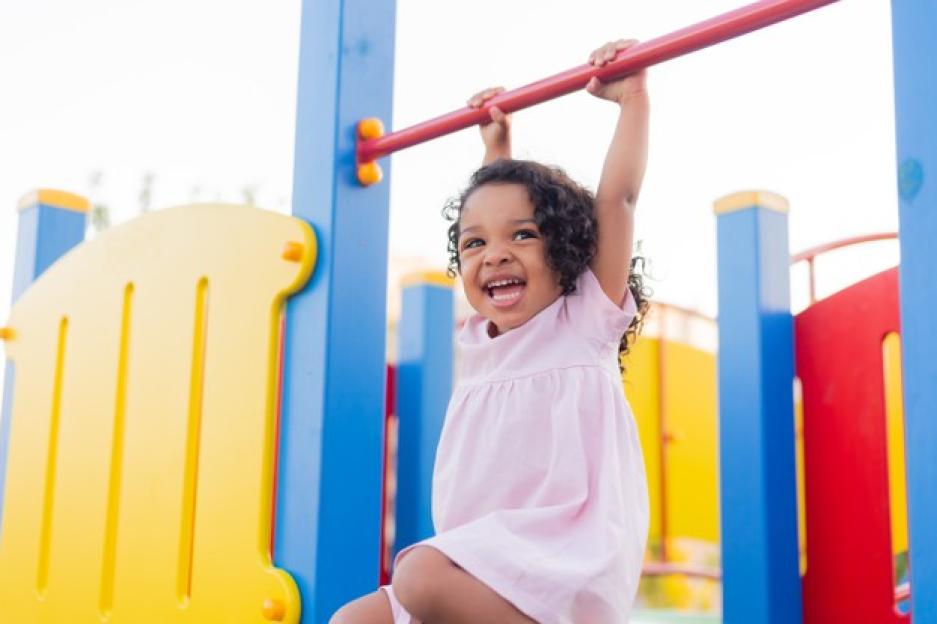WATCHING daughter Katie die an agonising death from cancer, David Minns was so desperate to end her pain he contemplated smothering her with a pillow.
Having already lost his first wife, Katie’s mum, suddenly in 2001, the pair were very close, and it broke David’s heart to see her suffer â and simultaneously filled him with dread.
David was devastated after watching his daughter’s deterioration from cancerIn a tragic twist to an already heartbreaking tale, the devoted dad, 75, was diagnosed with incurable cancer on the very day Katie, 46, learned her own disease was terminal, in July 2020.
David, from West Suffolk, was in hospital when Katie rang to tell him she had just months to live.
Meanwhile he had just been diagnosed with a rare blood cancer â and given his own prognosis of two years.
Now David is calling for a change in the law to overturn the ban on assisted dying â so that future families don’t have to suffer the way he and his loved ones have.
“Katie’s suffering was horrific to witness. Despite the best efforts of dedicated NHS and hospice care, her death was heartbreaking,”;; he tells The Sun.
“Katie had a sarcoma in her cheek and the operations meant she lost half her face and one eye, her speech was affected, and she was unable to eat, so she was only five stone when she died.
“To see her lying there looking up at me, it was like she was begging, ‘please help me’.
“It was very difficult for her but it was also harrowing for the family to have to witness what she was going through.
“At one point I contemplated putting a pillow over her face â and that’s when I started to question why the law puts us in this position.
“Why are we allowing people to die like this, or putting families in a situation where they feel they might go to such lengths to end suffering?”;;
New inquiry
Assisted dying is currently illegal across the UK and anyone convicted of aiding suicide, even at the behest of a dying loved one, faces up to 14 years in jail.
It’s estimated that up to 650 terminally ill people take their own lives , with up to ten times as many attempts â either alone or with compassionate but illegal assistance from loved ones.
Earlier this week the Health and Social Care Select Committee announced the first-ever inquiry into assisted dying.
Now Dignity in Dying â who have been calling for the review since 2019 through their Compassion is Not A Crime campaign â is urging MPs to listen to the voices of bereaved families and terminally ill patients like David.
While dad-of-two David knows any change will come too late for him to avoid a slow and painful death, he believes those who have experienced the death of a loved one have the most to offer in the debate.
“I am relieved that an inquiry has been called,”;; he says.
“A change in the law won’t come in time for me, but by contributing my and Katie’s experience to the committee, it will help MPs understand that action must be taken to avoid the terminally ill and their families having to suffer like ours.”;;
‘Horrific’
Doctors diagnosed Katie after discovering a growth in her cheekKatie in her younger yearsKatie was diagnosed with cancer at the age of 39, after a growth appeared in her right cheek.
She was told that the average life expectancy with her type of sarcoma was around five years.
Surgeons at London’s Royal Marsden hospital operated to remove the tumour, but she was left permanently disfigured after losing an eye and much of her face, as well as the palate of her mouth.
Initially Katie, who had never married, coped well with the treatment, but she gradually became more reclusive.
“I used to say there were two of her â Katie BC (before cancer) and Katie AD (after diagnosis) because she completely changed,”;; says David.
“She suddenly realised her mortality, and the way that she carried her disfigurement was an inspiration to so many people.
“But as her condition got worse, she became more of an introvert. The COVID lockdown was a godsend for her because she literally locked herself away.
“She didn’t want to talk to anybody. She didn’t want to see anybody, because she had become quite grotesque and lost so much weight through not being able to eat.
“The chemo and radiotherapy were horrific for her. She was fed through a tube in her nose because she couldn’t get her mouth open and nobody could understand what she was saying so she got very frustrated.”;;
Double tragedy
David received yet another devastating news on the same day Katie was told her cancer was terminalFive years after his daughter’s diagnosis, in the summer of 2020, David was admitted to hospital for tests after feeling unwell.
“I was in for a month while they tried to find out what was wrong with me and, because it was at the height of the Covid lockdown, I had no visitors, not even my wife Sue,”;; he says.
“Obviously Kate couldn’t come in because her treatment affected immunity and left her vulnerable, but she rang me to tell me she had spoken to the consultant and she’d only got months to live.
“On the same day I was diagnosed with this incurable blood cancer which was so rare nobody at the hospital knew anything about it or how to treat it.
“They gave me six months to two years to live.
“As I was starting my first rounds of chemo, she was finishing her treatments and doctors were saying there’s nothing more they could do.
“The chemo and radiotherapy were so debilitating that she was suffering as much from the treatment as she was from the cancer.”;;
While they were dealing with agonising pain, David says the knowledge that both were dying gave them a special bond.
“It’s a unique situation for a father and daughter, to be terminal together and have the conversations that we had about dying and how we were gonna die, and the options open to us,”;; he says.
“She was determined she was going to go before me, and there was a lot of dark humour.
“We lost her mother, my wife, suddenly in 2001 and Katie would say ‘I can’t wait to get up there and tell Mum what you’ve been up to.’
“She spoke about her funeral, so we organised that while she was still alive.”;;
Anticipating they would both suffer an agonising and distressing death, the pair talked about suicide but they had a very personal reason for rejecting that pathway.
“My brother took his own life six years ago, for no apparent reason, and planned it all in advance, leaving a funeral plan,”;; says David.
“That horrified Katie, and she was angry about it so, despite all the pain and suffering that she endured, that was the last thing on her mind.
“She had enough tablets around to take her own life but she was adamant she never would and made me promise that I wouldn’t either.”;;
Devastating loss
Katie sadly died last year in JulyAs Katie deteriorated, the family would take turns to stay with her, but due to hypertension caused by his own cancer, which causes dizziness, it was difficult for David to sit for longer than around 20 minutes before lying down.
David and Sue spent the evening with her before she died in July 2021, having drinks and a takeaway â which Katie liked to order even though she couldn’t share it with them.
The following night they were called to the house by David’s brother-in-law Kevin, after Katie’s condition deteriorated and an ambulance and hospice carers were called.
“She wasn’t responding in any way, and the medics found her blood pressure was too low,”;; he says. “They put her on a driver (a pump syringe that administers medication) and within 15 minutes she died.
“Although she wasn’t responding, her remaining eye was just staring all the time, and even after she died, they couldn’t shut her eye.
“It was horrific for her and for us.”;;
Although he says he and Katie had their ups and downs throughout her life, David says “you never know what love is until you have a child”;; and they bonded at the end.
“Katie wasn’t gregarious and was never an emotional child,”;; he says. “But occasionally she was very touchy, huggy, and they were wonderful times.
“She didn’t open up often but as our situations got worse, she got much more open and used to tell me how much she loved me and how grateful she was for everything that I had done for her.”;;
‘Wonderful life’
David is determined to live longer than what doctors have predictedDavid’s own health has been devastated by his blood cancer and an associated condition called amyloidosis, which is slowly damaging his vital organs.
But the 75-year-old, who also has a son, Matthew, and shares five young grandchildren with his second wife Sue, remains remarkably upbeat.
“There isn’t a part of my body that’s not affected by this cancer,”;; he says. “It affects my nervous system, all my senses, my taste, feel, I’ve got neuropathy, I have postural hypotension, which means I can’t stand up without falling over so my whole life is spent horizontal.
“But I have a wonderful life considering my situation. I’ve lived a lot longer than anticipated and intend on living longer.
“I have a wonderful wife and family and friends who support me. I couldn’t do it without them. I don’t dwell on the negatives.”;;
He admits he has contemplated suicide on a couple of occasions but says he’s put off by “vanity”;; and the thought of a loved one, or even an emergency worker, finding him dead because he doesn’t want there to be “collateral damage”;;.
While he says there must be tight restrictions around any legalised assisted dying, he believes the law has to change to allow the option for terminally ill patients.
“My best-case scenario is that I have a heart attack or heart failure,”;; he says. “I have the option of suicide, which is not going to happen, or palliative care where I will die sedated.
“But I want to be able to be with my family. I want to say goodbye to my friends. I want to be in an environment in which I’m comfortable, at home, and go at a time of my choosing when my situation becomes intolerable.
“At the moment the patient is suffering and families are suffering just as much, watching what their loved ones have to go through.”;;
David is joined in the campaign by Joy Munns, 57, from Staffordshire, whose then 79-year-old mother Mavis Eccleston was tried and acquitted of murder and manslaughter after surviving an attempt to end her own life alongside her terminally ill husband Dennis in 2017.
“When my Dad was dying in agony from bowel cancer, he desperately wanted to die on his own terms with his family around him,”;; she says.
“But he was denied that option, forced to resort to begging my mum for help to end his suffering, with no idea that she would end up being locked in a police cell in her nightie and put in the dock for murder 18 months later.
“I urge members of the Committee to ask themselves how they can possibly conclude that the law is working well when this is the impact it has.”;;
For help and support, contact Samaritans on 116 123.



